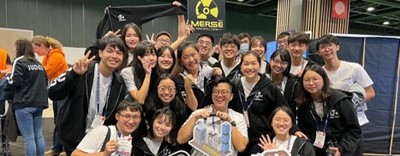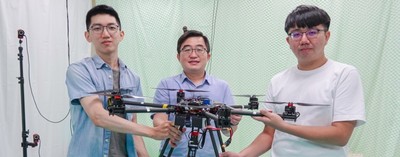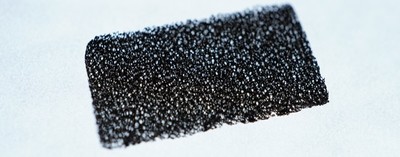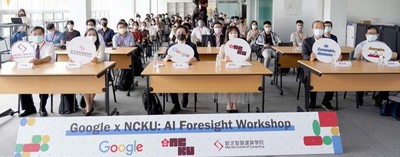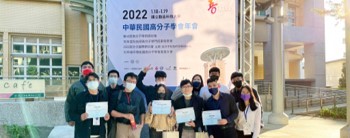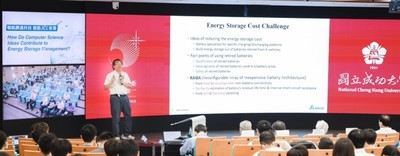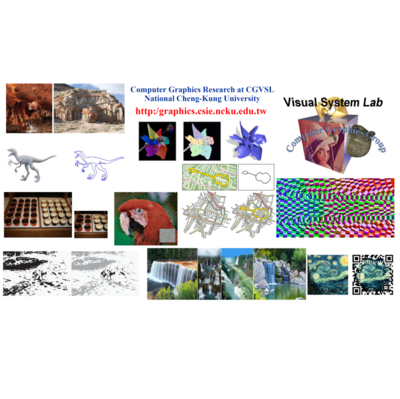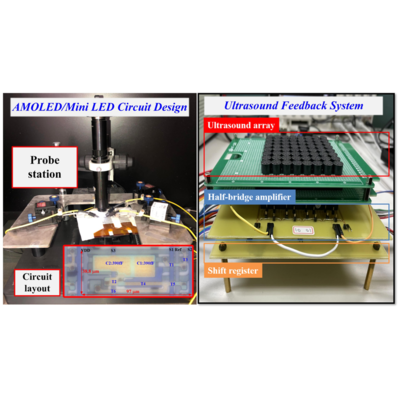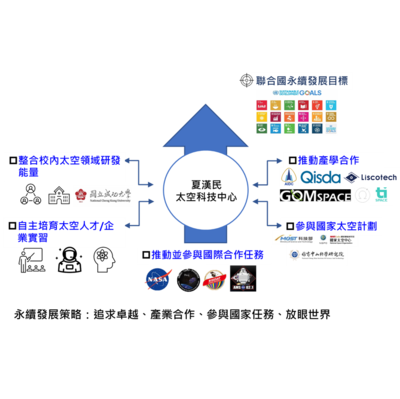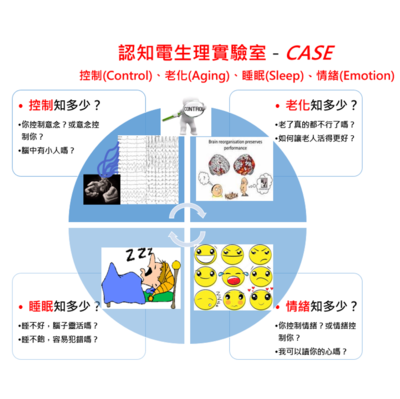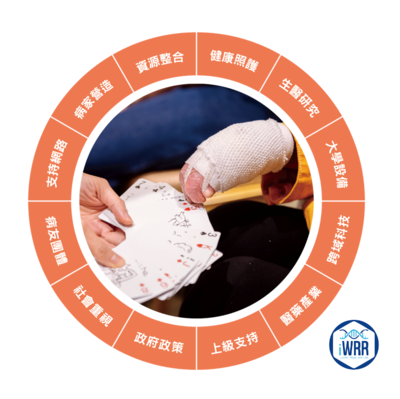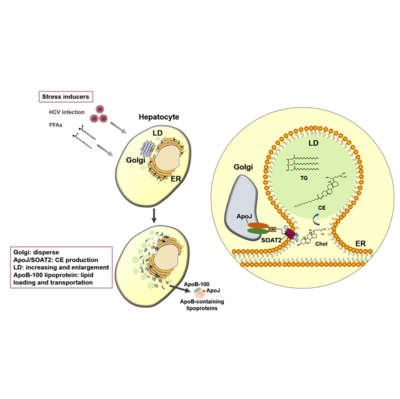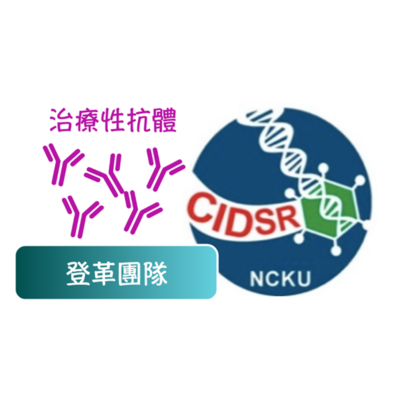News

Research Focus
|
Gold Medal Won by NCKU iGEM Team in Paris
2022-11-19
|
|||
Vol.34 NO.2 Research Highlights-Enhance Academic Strengths and Empower Through Technology
This year marks the 91st anniversary of National Cheng Kung University (“NCKU”) and also brings NCKU one more step towards its centenary. Carrying on the spirit of “humility, generosity and pursuit of the common good” that has underpinned NCKU over the past 90 years, NCKU will continue to work with one heart and one mind to bring together academic strengths across generations and leverage the power of knowledge to promote the sustainable development of Taiwan and the world at large. In the first half of 2022, many teachers and researchers from NCKU were presented the Special Outstanding Researcher Award, Outstanding Research Award, Academic Research Award for Postdoctoral Researchers, and other important awards by the Ministry of Science and Technology. These awards give recognition to many years of research of the faculty of NCKU, and also show trust of the various professional communities in Taiwan in the academic strengths of the university in various fields. In this issue, some of the awardees were invited to share their research results. Professor Cheng-Ta Yang from the Department of Psychology provided insights in interdisciplinary integration of mathematics and cognitive psychology. Professor Tong-Yee Lee from the Department of Information Engineering unveiled research on computer science and computer graphics. Professor Chih-Lung Lin sought to apply leading-edge display technologies in promoting policies in Taiwan's healthcare and display industries and mapping out a smart life blueprint for 2030. Professor Shoou-Jinn Chang used advanced research methods in research UV sensors. Three postdoctoral researchers and recipients of the Academic Research Award - Dr. Shu-Hsuan Su, Dr. Chien-Lung Liang, and Dr. I-Ying Kuo - also shared their viewpoints and experience. The space industry and space economy have been growing exponentially in recent years. Space is an important research topic in many countries and is one of the six core strategic industries of Taiwan. This year, NCKU established the Hsia Han-Min Space Science and Technology Center to cultivate talents for the space industry of Taiwan and help promote the development of this industry. The director of the center was invited to share the vision of the center in this issue.
Over the past nine decades, NCKU has evolved into a prestigious research university. In the future, the university will continue to strengthen academic research and leverage advanced technology to fulfill the mission of NCKU and contribute to the social development, economic development, and human development of Taiwan as well as sustainable development of the world.
Exclusive Interview: postdoctoral research
Vol.34 NO.3 Research Highlights-Interdisciplinary Medical Research Advances Precision Medicine
As interdisciplinary research becomes a focus of academia, the establishment of a biomedical database based on the integration of medical technology with artificial intelligence and big data has become fundamental to quick diagnoses, prescription and treatment, and are also essential to effective, patient-specific treatment. It is evident that interdisciplinary research on precision medicine has become an integral part of today's medical research.
Three precision medicine research teams were invited to share their interdisciplinary medical research results in this issue. Ming-Jer Tang, an expert in Epidermolysis Bullosa and other genetic skin diseases and director of the International Center for Wound Repair and Regeneration of NCKU, contributed an essay titled "The Most Difficult Wound - An Innovative, Integrated Medical Care Model for Congenital and Chronic Wounds", and shared insights into integration of precision medicine with clinical care. To address the challenges Taiwan is facing recently, Professor Kung-Chia Young from the Center of Infectious Disease and Signaling Research analyzed the relationship between viruses and fatty liver in the “Common Factors of Viruses and Obesity in Inducing Fatty Liver". Assistant Professor Shu-Wen Wan and Professor Trai-Ming Yeh explored the possibility of human immunity to the Dengue virus in "Development of Therapeutic Antibodies Against the Dengue Virus". Professor ShuLan Hsieh, a recipient of the Outstanding Research Award in 2020 and the Future Technology Breakthrough Award in 2018 from the Ministry of Science and Technology, was invited to contribute the fourth essay of this issue. In "Getting Addicted to Research - My Way of Learning and Thinking", she shared her experience in interdisciplinary research on psychology, mathematics and brain medicine, and earnest attitude towards learning.
In addition to the above research results, NCKU has actively responded to the needs of society. The high-throughput coronavirus variant protein chip, for example, is a recent research result of NCKU that detects COVID-19 vaccine neutralizing antibodies through blood testing and analyzes the immunity characteristics in mild and severe COVID-19 cases to assist in triage classification, preventive administration, and COVID-19 diagnosis. Backed by the College of Medicine and the teaching hospital, NCKU has accumulated extensive experience in integrating academic and clinical research, and has established a comprehensive mechanism for applying medical research in clinical treatment. The research results reported in this issue are a crystallization of persistent efforts of NCKU in the UN SDG3 initiative (good health and well-being), based on which NCKU will continue to contribute to the sustainable development of the world.






